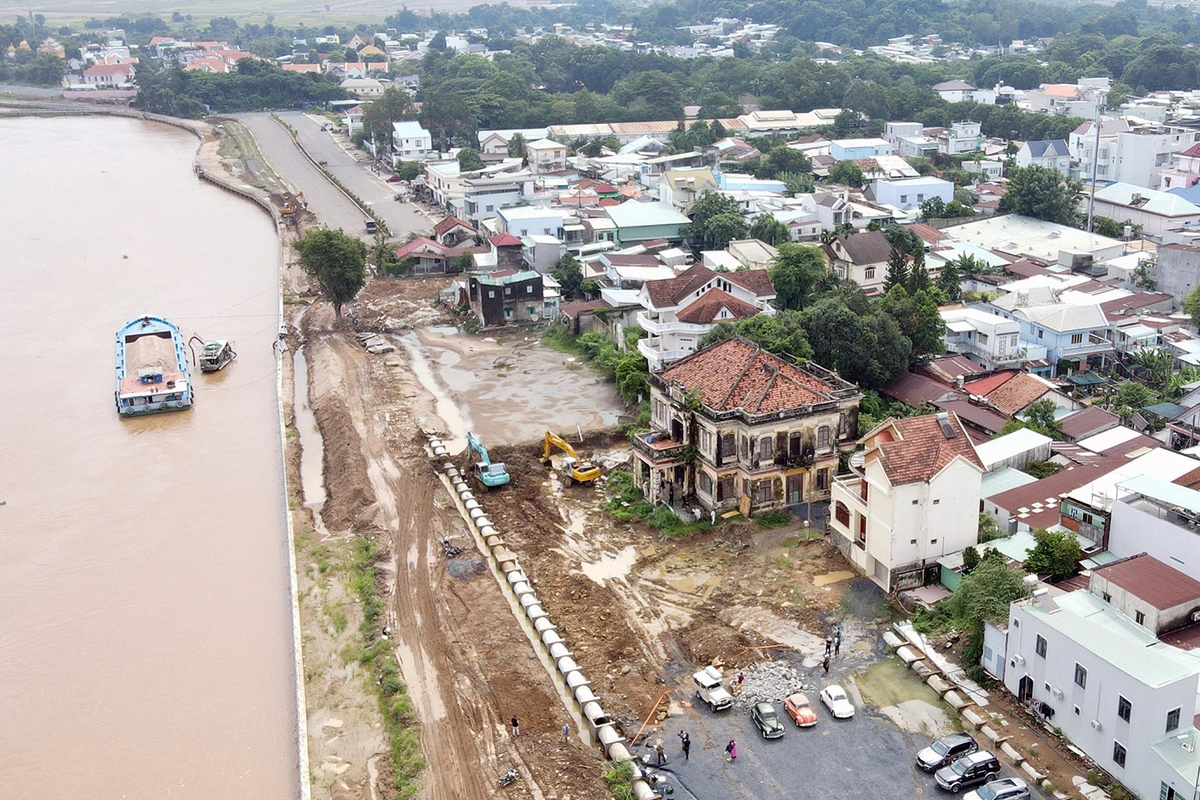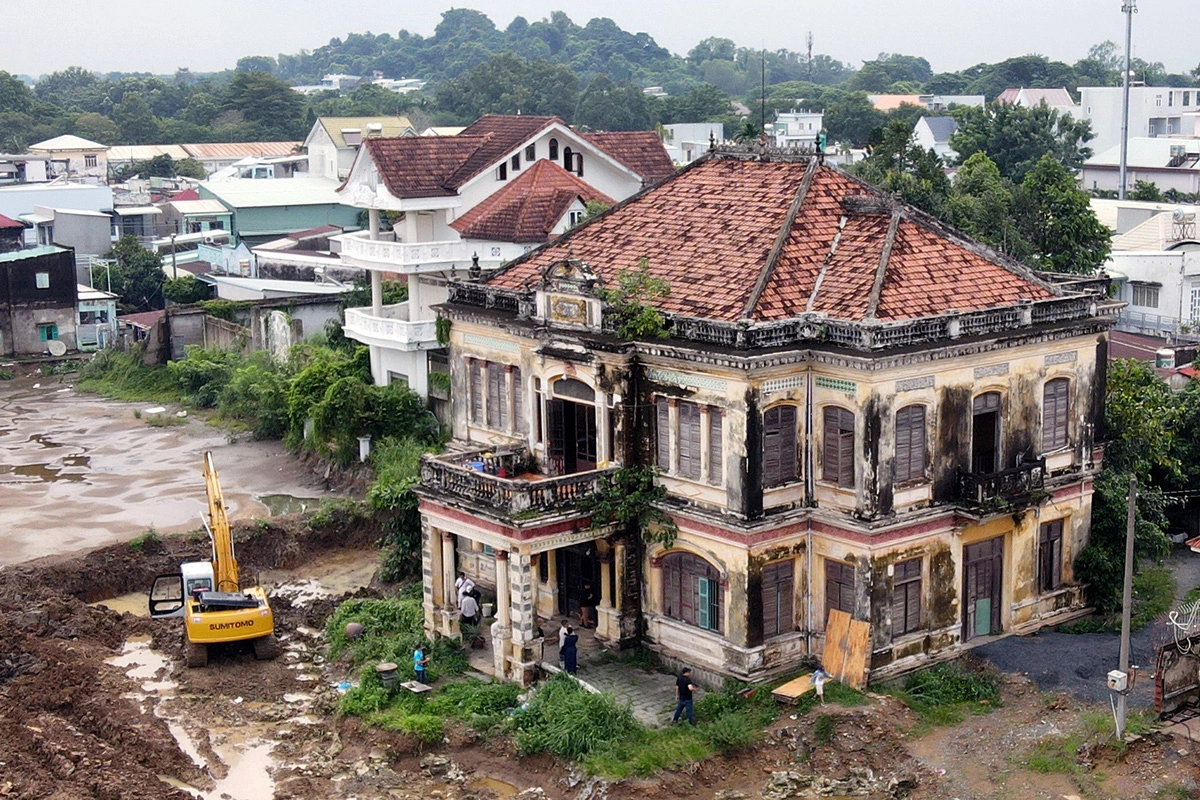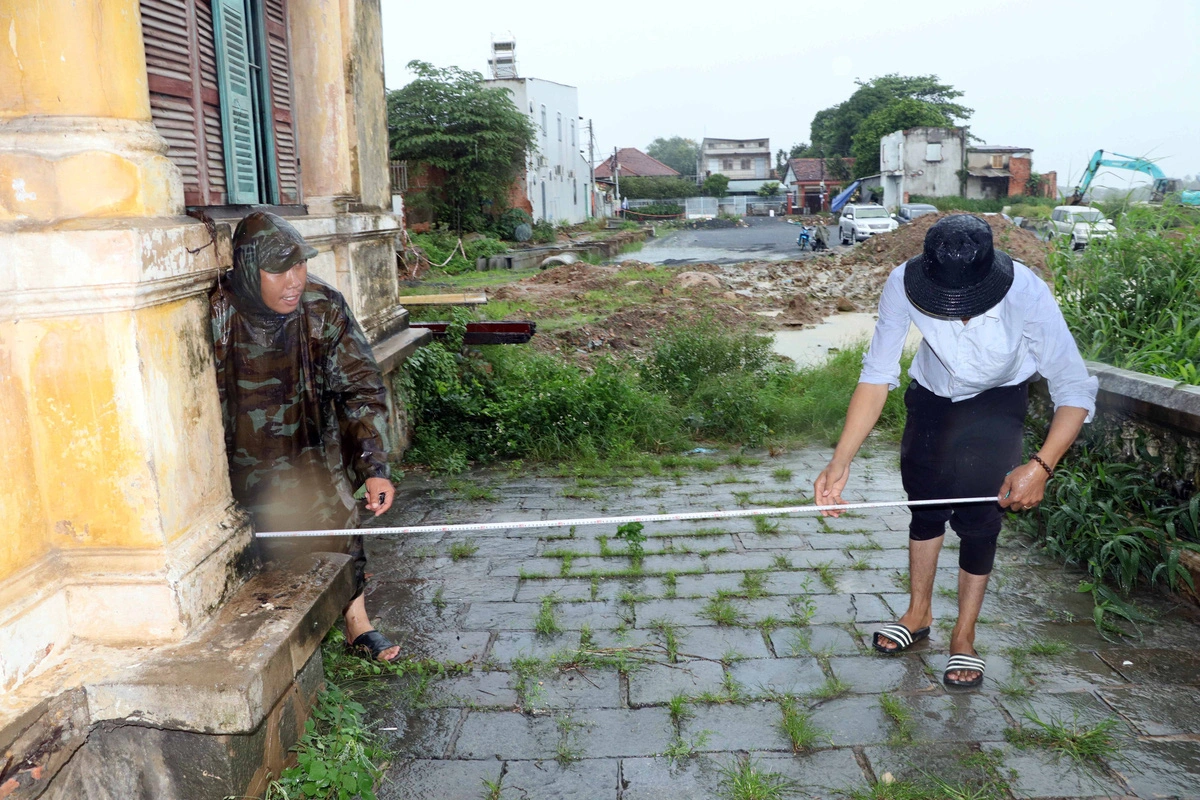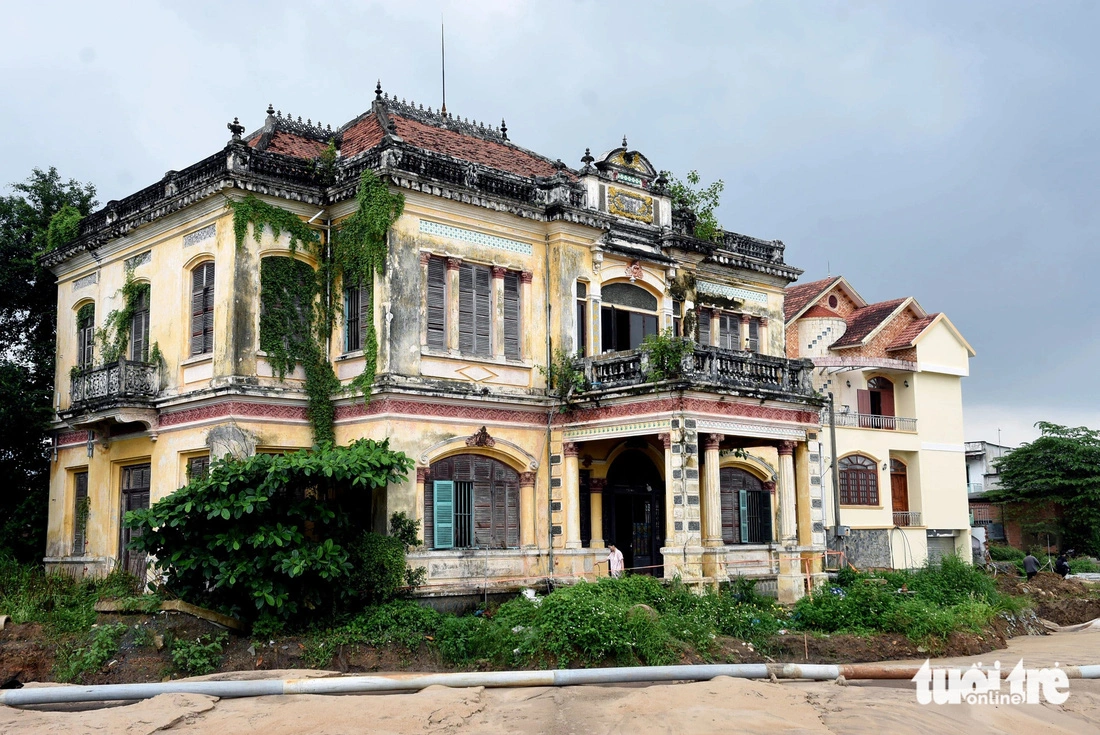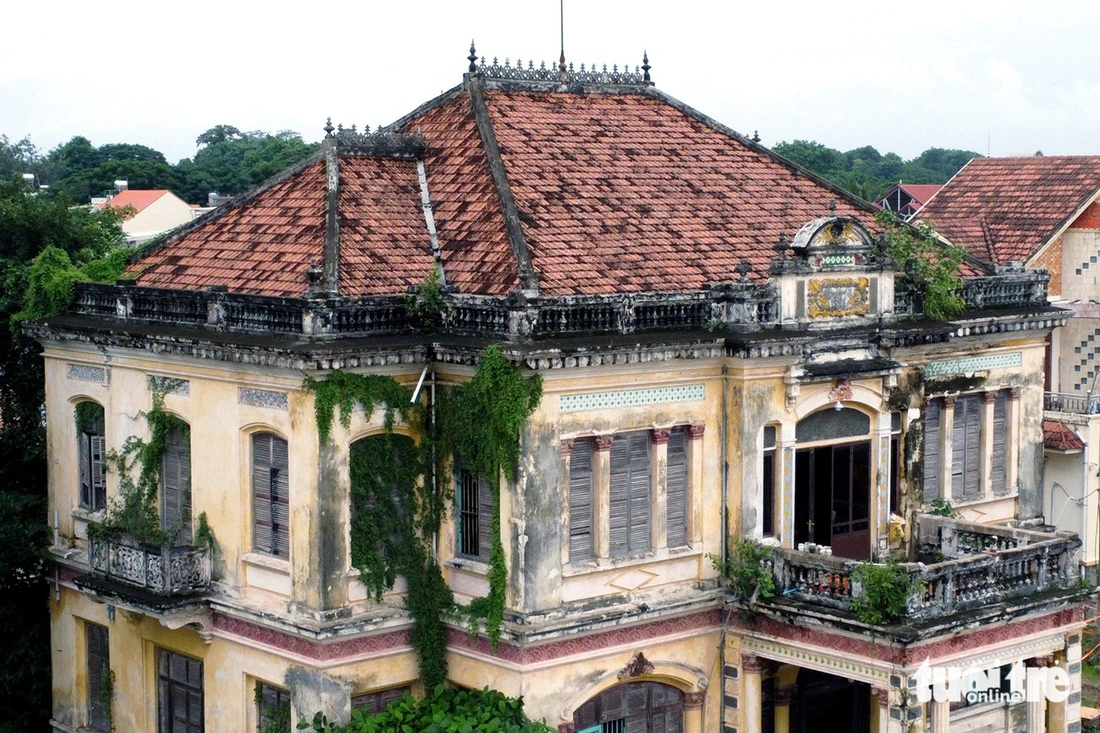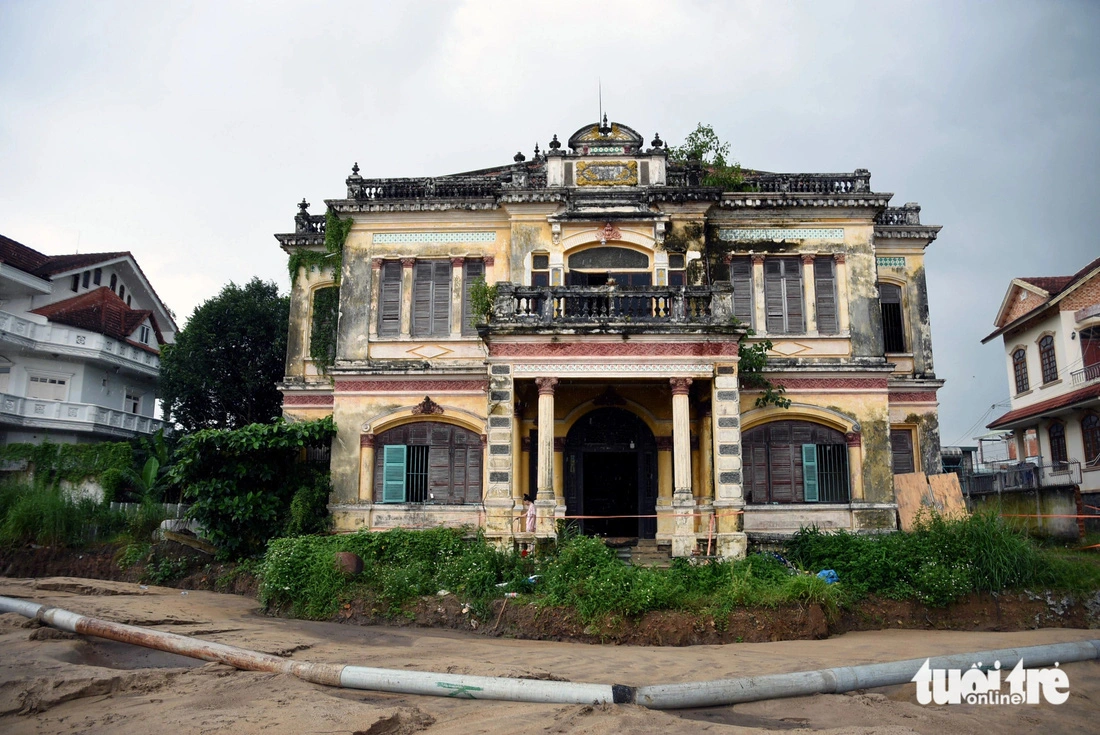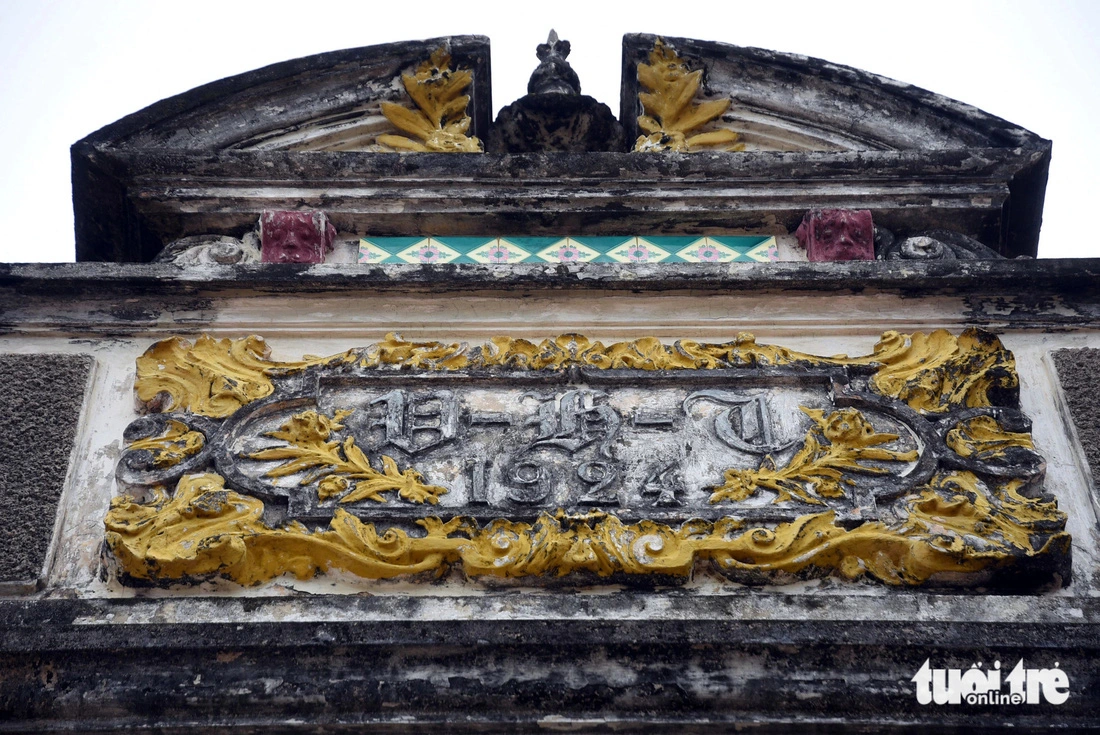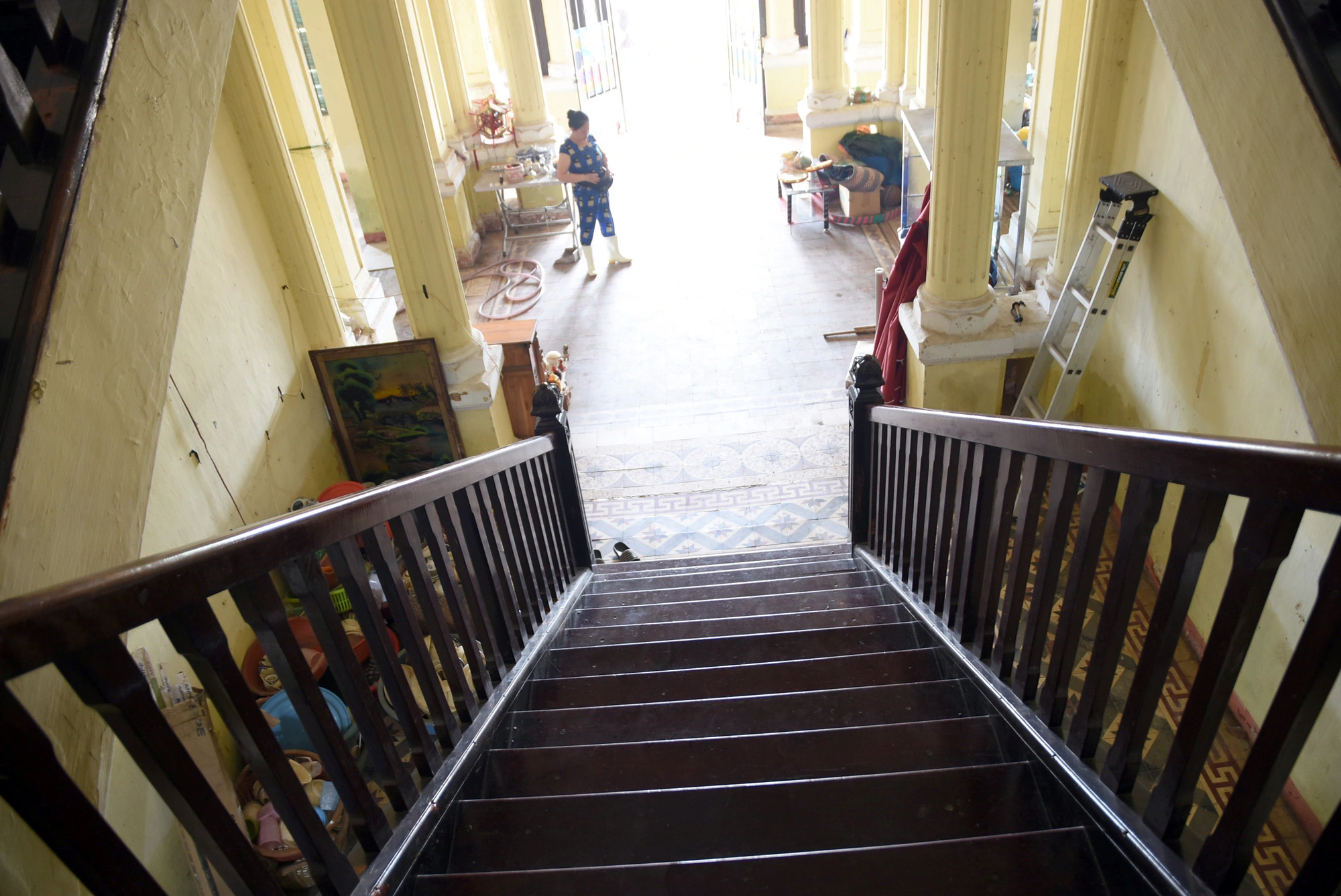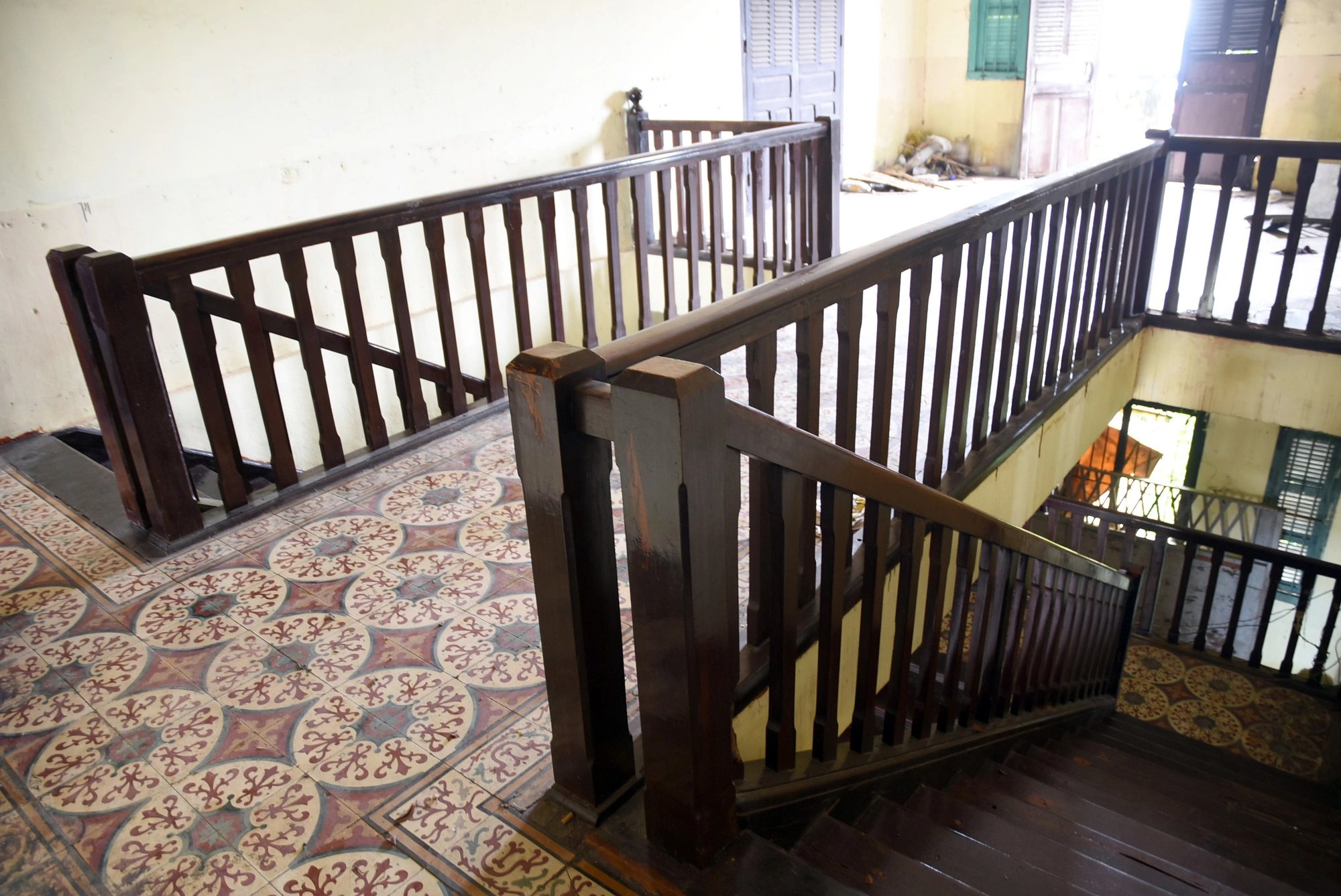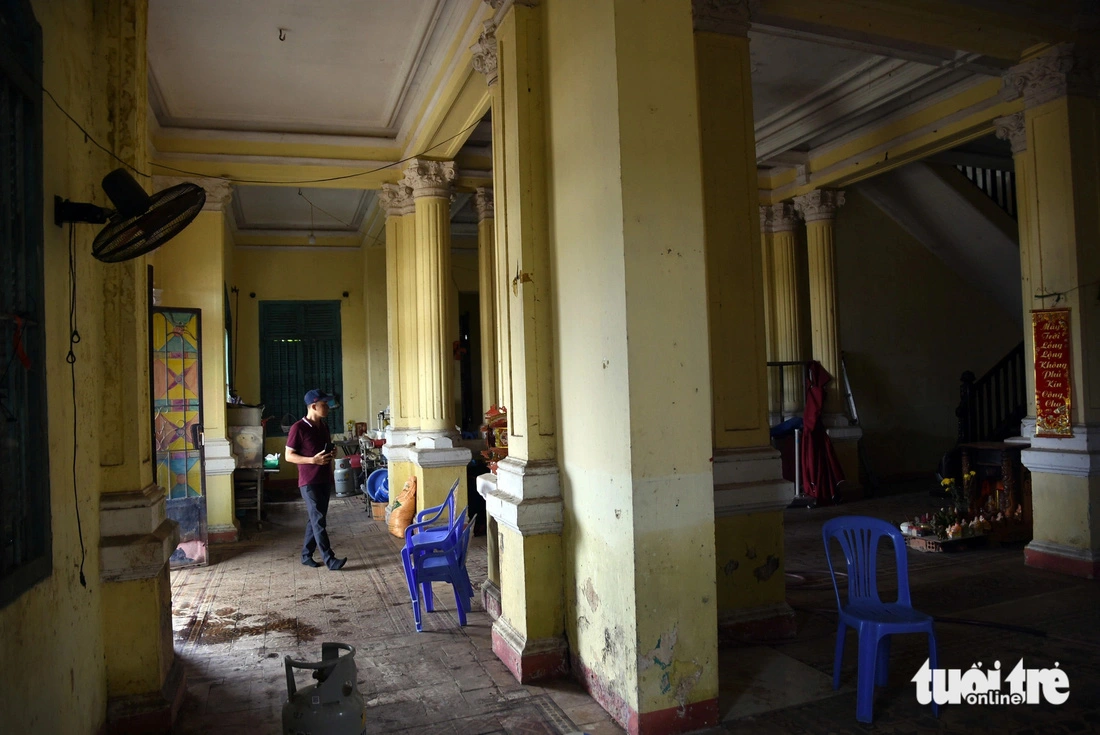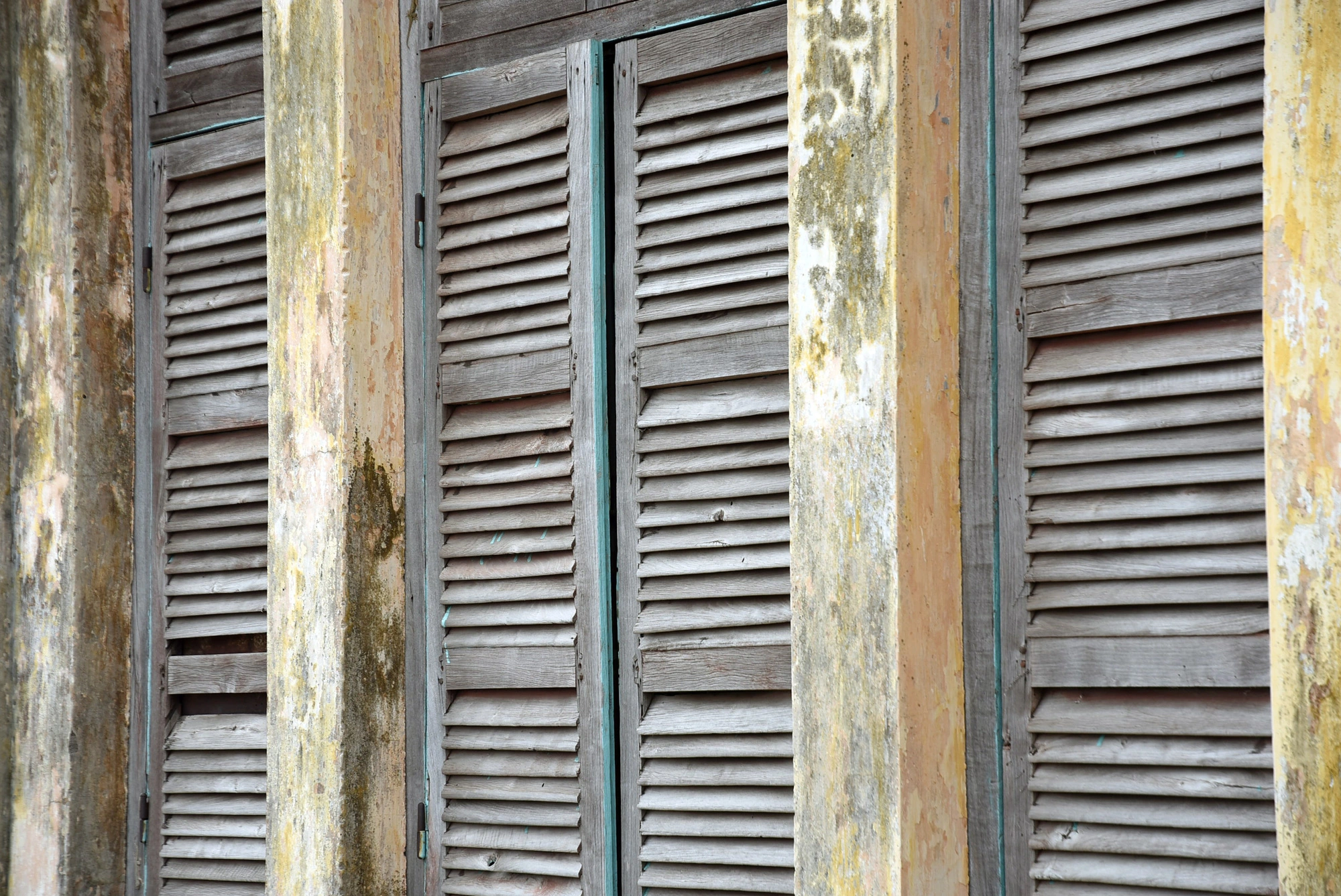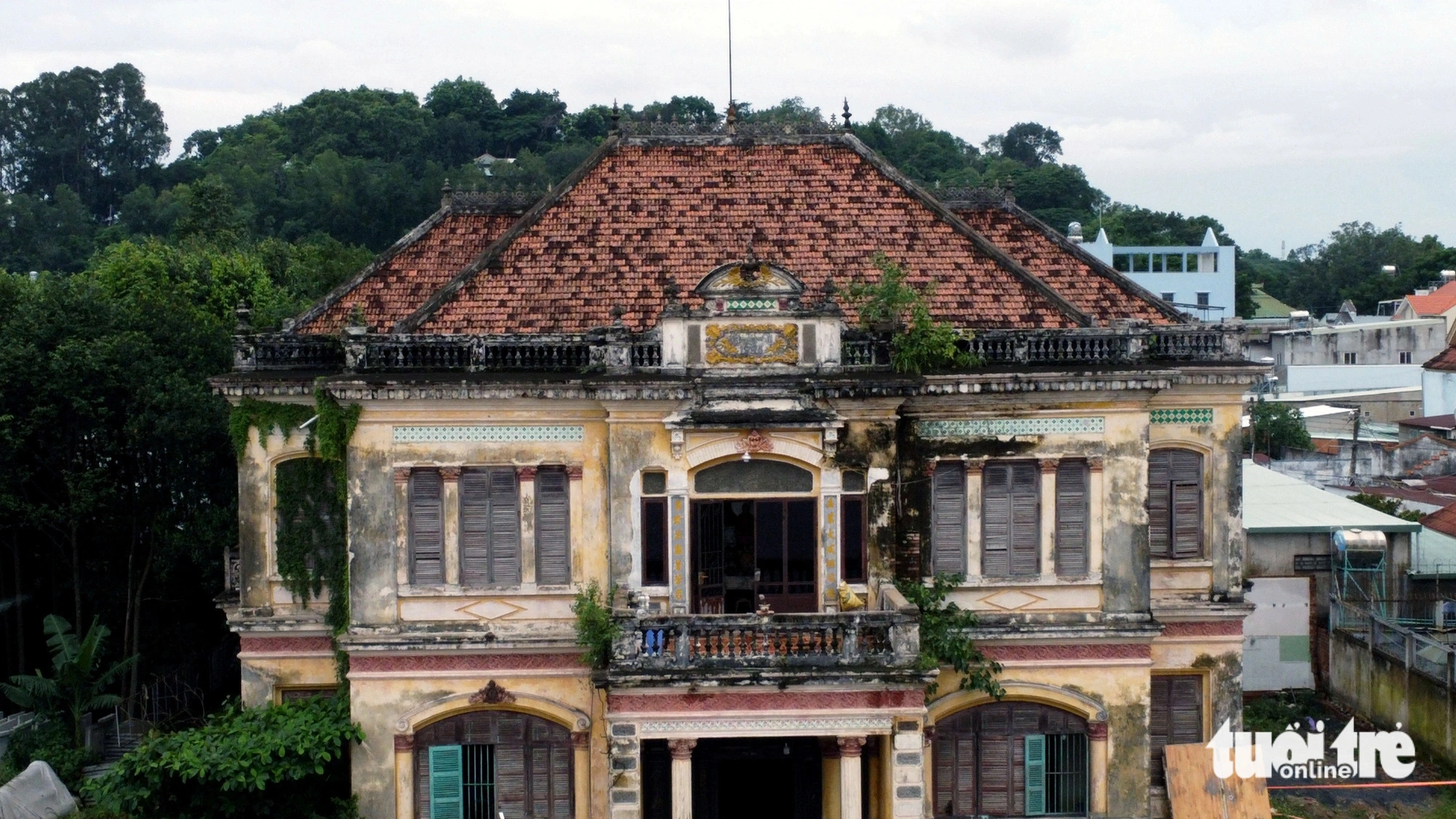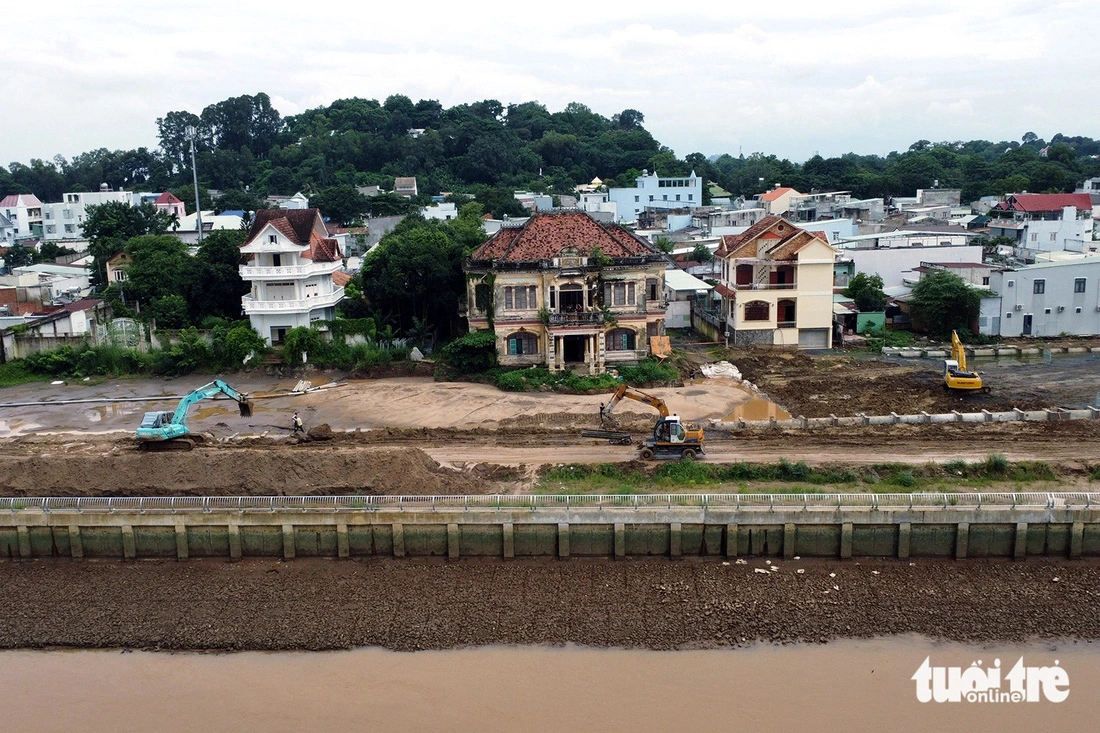A 100-year-old villa in Dong Nai Province, a neighbor of Ho Chi Minh City, is facing a risk of demolition to make room for a riverside road.
The villa of Vo Ha Thanh, a former local governor, is situated in Buu Long Ward, Bien Hoa City, Dong Nai Province.
The villa was built in 1922-24 with all building materials imported from France.
It includes two floors and features Western architecture, with its front facing the Dong Nai River.
The building holds cultural, historical, and architectural significance, leading many to say that dismantling the villa would be a great loss.
|
|
| The fence and garden of the villa have been removed for the project. Photo: An Binh / Tuoi Tre |
The villa has a tile roof, many large pillars, wooden windows and staircases, as well as spacious corridors.
The edifice earlier had a fence and a garden. However, they have been removed for the riverine road project.
The villa has not been upgraded for many years and is showing signs of deterioration. Its walls are covered with patches of moss, the paint is peeling, and several windows are broken.
Dong Nai authorities have estimated compensation for the villa's owner at nearly VND5.4 billion (US$219,920).
|
|
| Local officials survey the location of the villa. Photo: An Binh / Tuoi Tre |
Dang Thi Linh Phuong, who is living in the villa, said the house was built by her great-grandfather. She moved to live in the villa in 1978.
Her family hoped that local authorities would take measures to retain the villa, said Phuong.
Representatives from the provincial Department of Construction, the Department of Culture, Sports, and Tourism, and other relevant agencies have surveyed the location of the building.
They found that the riverside road project will encroach on nine meters of the land on which the villa is located, or half of the land lot’s length.
|
|
| The 100-year-old villa holds cultural, historical, and architectural significance. Photo: A Loc / Tuoi Tre |
Renowned architect Ngo Viet Nam Son proposed two solutions for constructing the road without impacting the villa.
For the first solution, the Dong Nai authorities could ask relocation guru Nguyen Van Cu, dubbed ‘a lamp genie,' to relocate the villa backward and turn it into a cultural and tourism site.
For the second solution, the province could replan the road project to make it encroach on part of the Dong Nai River’s surface. At the time, the new road would pass through the decade-old villa, opening up opportunities for the riverside urban area development.
|
|
| Creepers and moss are seen on the walls of the villa. Photo: A Loc / Tuoi Tre |
Tran Quang Toai, chairman of the Dong Nai Historical Science Association, emphasized that the villa holds significant historical and cultural value.
He noted that preserving the villa would maintain the historical and cultural link between the Dong Nai River and its surrounding areas in Bien Hoa City.
Toai expressed his support for Son's second solution, recommending that designated agencies take steps to preserve the villa.
|
|
| The villa features Western architecture with pillars, windows, and rooms arranged symmetrically. Photo: A Loc / Tuoi Tre |
|
|
| The villa was built by Vo Ha Thanh, a former governor in Dong Nai Province, in 1922-24. Photo: A Loc / Tuoi Tre |
|
|
|
|
| The building has large staircases. Photo: A Loc / Tuoi Tre |
|
|
| Large pillars help the villa stand firm. Photo: A Loc / Tuoi Tre |
|
|
| The villa has wooden windows. Photo: A Loc / Tuoi Tre |
|
|
| The villa features sophisticated patterns. Photo: A Loc / Tuoi Tre |
|
|
| The villa is located at a planned site for a road along the Dong Nai River, so it faces demolition. Local authorities have estimated an amount of nearly VND5.4 billion in compensation for its owner. Photo: A Loc / Tuoi Tre |
Like us on Facebook or follow us on Twitter to get the latest news about Vietnam!



